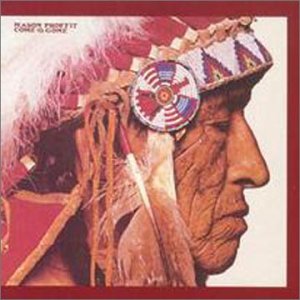
- Format: LP

After Mason Proffit signed to Warner Bros. Records, the label reissued the band's first two albums, Wanted! Mason Proffit and Movin' Toward Happiness, as a double-LP set under the title Come & Gone. "Hear the voice of change," commanded the Talbot brothers at the opening, and the song, "Voice of Change," was both a political statement calling out to President Nixon's "silent majority" and a statement of purpose from the band. Like their peers on the West Coast, the Midwestern Talbots attempted to merge the musical and social concerns of the folk-rock movement with elements of traditional country. But they were a bit more Western-styled than the Flying Burrito Brothers and less of a good-time outfit than Poco. The music took off from folk and country sources into progressive rock, the pedal steel guitar and fiddle augmented here and there by strings, while the brothers' tenor harmonies gave the group a distinctive vocal sound. Mason Proffit wanted to change musical tastes and political beliefs at the same time. They lamented the plight of Native Americans in "Flying Arrow," and while they could pick a mean hoedown on "Old Joe Clark," their version somehow managed to express antiwar sentiments. They recognized the connection between the cowboy myth and the independent spirit of truck drivers, and they mixed it all in with a sort of primitive Christianity. In this, they were very much of their time. Mike Cameron's "Good Friend of Mary's" fit into the Jesus cult that identified the Christian savior as a proto-hippie, preaching peace and love while wandering the country in long hair and sandals, and the Talbots sang it with their warm tenor harmony in complete sincerity. Such music wasn't going to make it far out of the early '70s, but in 1973 it remained appealing.